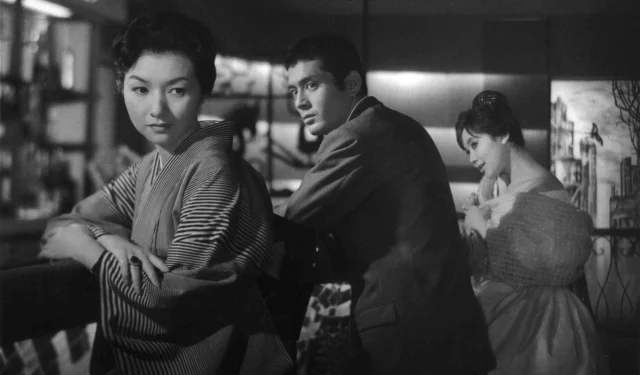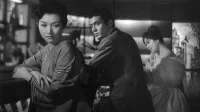Celebrating Mikio Naruse: A Retrospective of a Cinema Master
In a noteworthy collaboration, Japan Society and Metrograph proudly present “Mikio Naruse: The World Betrays Us,” a unique 30-film retrospective dedicated to the renowned Japanese filmmaker, often referred to as the “fourth great” master of Japanese cinema. This exceptional event, co-organized with the Japan Foundation New York, takes place from May 9 to June 29, 2023, marking the first significant showcase of Naruse’s work in two decades. The retrospective commemorates the 120th anniversary of his birth and features rare prints sourced from collections and archives in Japan.
Notable Highlights and Features
The series will spotlight Naruse’s adaptations of the esteemed feminist author Fumiko Hayashi, including notable films like Floating Clouds, Repast, and Wife. This event will also stage the New York premieres of three pre-war films that have never before been shown in retrospectives: Morning’s Tree-Lined Street, A Woman’s Sorrows, and Sincerity.
A Glance at Naruse’s Career
Mikio Naruse’s prolific career, spanning nearly 40 years, comprises 89 films, with 68 still accessible today. He began his journey in the prestigious Shochiku studio but left to join P.C.L., now known as Toho, a platform that allowed him to evolve as a filmmaker. Celebrated director Akira Kurosawa described Naruse’s cinematic style as “a great river with a calm surface, and a raging current in its depths,” highlighting the complexities beneath his seemingly simple narratives.
Champion of Women in Film
As a contemporary of esteemed filmmakers Kenji Mizoguchi and Yasujiro Ozu, Naruse earned accolades for his subtle yet poignant melodramas, particularly those portraying the challenges faced by women in Japanese society. His work within the shoshimin eiga genre, which focuses on the lives of the lower-middle class, reflects a deep social awareness. Notably, Naruse is revered among actresses for his ability to nurture some of the most memorable performances of the era. Icons like Hideko Takamine collaborated with Naruse on multiple occasions, contributing to his legacy through films such as Lightning and When a Woman Ascends the Stairs.
A Complex Legacy
Despite his impressive achievements, Naruse was known for his quiet demeanor and reluctance to communicate his directorial vision, which often bewildered colleagues. Actor Tatsuya Nakadai once reflected, “He was the most difficult director I ever worked for. He never said a word. A real nihilist.” Yet, his challenging temperament coexisted with a progressive philosophy, as he encouraged his assistants and supported female filmmakers, including the talented Kinuyo Tanaka, who sought to direct her own projects.
Upcoming Events and Academic Insights
The retrospective opens on May 9 with Naruse’s acclaimed film Floating Clouds and concludes on June 29 with his final work, Scattered Clouds. From May 9 to May 31, the initial part of the series will explore Naruse’s masterpieces, culminating in the screening of Yearning (1964). Additionally, Naruse scholar Catherine Russell, author of The Cinema of Naruse Mikio: Women and Japanese Modernity, will deliver an insightful lecture at Japan Society on May 31. The second part of the retrospective will at Metrograph, commencing on June 5 with the iconic When a Woman Ascends the Stairs.
For further details and tickets, visit the official pages: Part I and Part II.
Through this retrospective, audiences will have the opportunity to explore the profound depths of Mikio Naruse’s cinematic legacy, celebrating a body of work that continues to influence contemporary filmmakers around the world.


